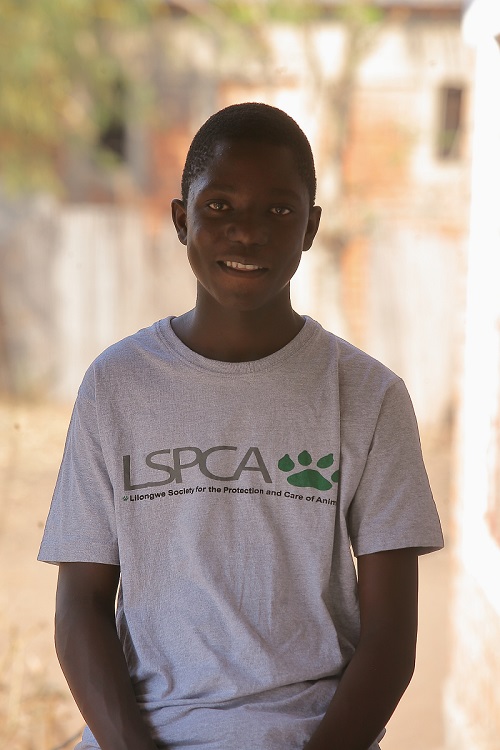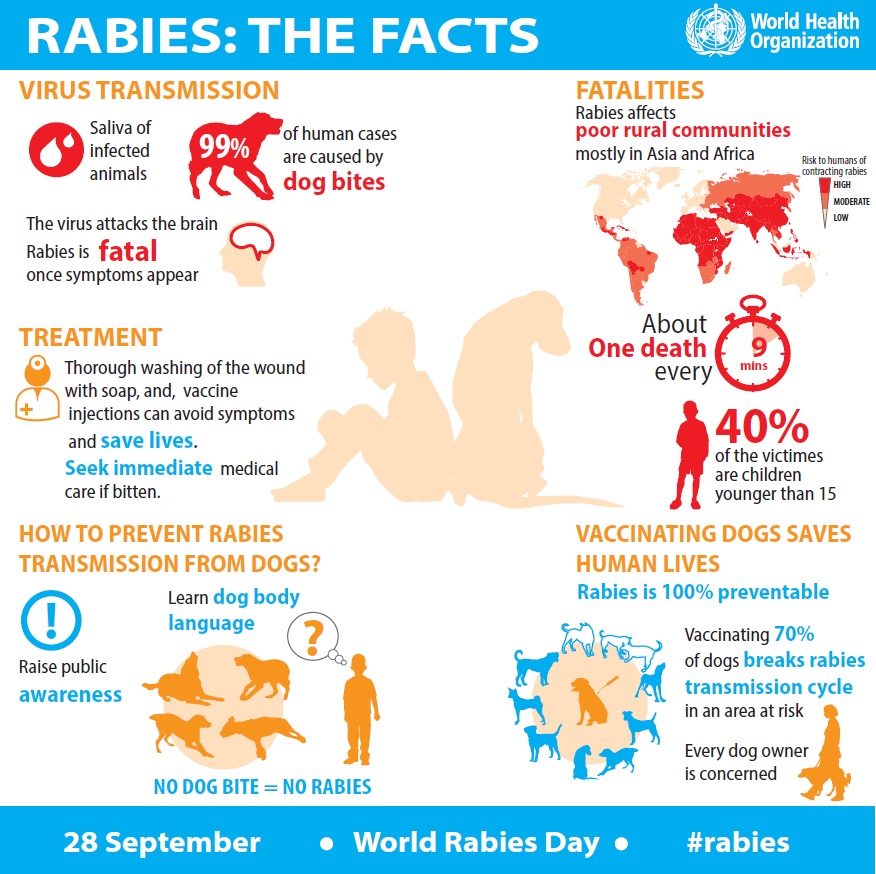In March 2018, a family and their sick puppy travelled through heavy rains in Malawi to a rabies vaccination drive. The puppy had bitten the family’s 12-year-old son, Isaiah Mzonda several days before and tested positive for rabies during the vaccination drive. Without appropriate prevention and treatment, rabies is fatal. Therefore, the rabies bite was a potential death sentence for the family’s young son who had not received any post-exposure treatment.
Given the urgency of the situation and the enormous logistical challenge in front of them, the Lilongwe Society for the Protection and Care of Animals (LSCPA) and RSPCA teams that had organized the vaccination drive worked together with the government and private healthcare facilities to send Isaiah for life-saving post exposure treatment with rabies vaccine and immunoglobulin. Now 6 months later, he is an amazing young ambassador for rabies, helping to spread the word and educate people in communities like his. He now shares his story with children around Malawi. “Vaccination is very vital because it protects our dogs and other animals such as cats from rabies,” says Isaiah.

This sadly, is not the case for many thousands of children throughout Africa and Asia, who account for 40% of the 59 000 deaths from rabies each year. There is one death every 9 minutes due to rabies with 40% of victims younger than 15 years of age. It is a horrifying and invariably fatal disease for those exposed who do not receive the post-exposure treatment promptly. Rabies continues to cause a devastating health and financial burden on some of the world’s poorest and most disadvantaged communities.
Every death from rabies is preventable
Every single death from rabies is entirely preventable as proven and cost-effective interventions for rabies prevention already exist. There is no reason for anyone to die from rabies in today. With bite avoidance, mass dog vaccination, appropriate wound care and post-exposure treatment, we can save thousands of lives each year.
Vaccinating dogs stops rabies transmission
99% of all rabies cases are caused by bites from rabid dogs and without appropriate prevention and treatment, the disease is fatal.
Successful rabies control programmes using mass dog vaccination campaigns have been implemented throughout the world, demonstrating that elimination is feasible. Vaccinating more than 70% of dogs in endemic areas breaks the rabies transmission cycle and prevents both dog and human cases.

Share the message. Save a life
Every year on 28 September, World Rabies Day brings together the international community to celebrate achievements and progress in defeating this horrifying disease and to promote rabies awareness and educational campaigns.
The theme of World Rabies Day 2018 is Rabies: Share the message. Save a life. Education is a core and vital component of World Rabies Day celebrations. Countries around the world have embraced World Rabies Day to raise awareness and educate communities on rabies control and prevention. By strengthening and expanding these campaigns, we can continue to move towards a goal of global dog-mediated rabies elimination.
The United Against Rabies collaboration consists of WHO, Food and Agricultural Organization, World Organisation for Animal Health and the Global Alliance for Rabies Control. The collaboration is built on 10 years of global partnership and is dedicated to achieve a shared global goal of zero human deaths from dog transmitted rabies by 2030.
“As parents, we need to make sure our children know how to behave around animals, as this can help to reduce a child's risk of getting bitten. When communities understand the importance of keeping their dogs healthy, they are more than eager to bring their dogs to get vaccinated. And when health workers are trained, they can save the lives of people who are exposed to rabies,” says Dr Bernadette Abela-Ridder, Team Leader, Neglected Zoonotic Diseases unit at WHO.
